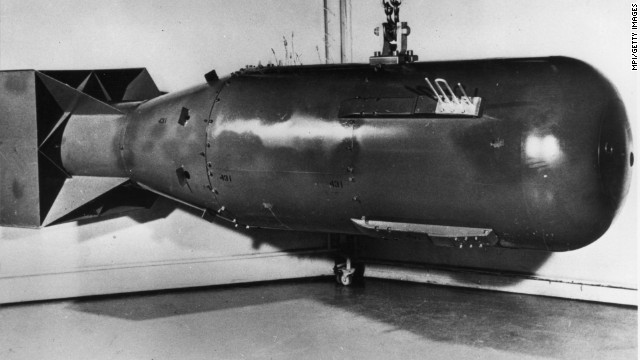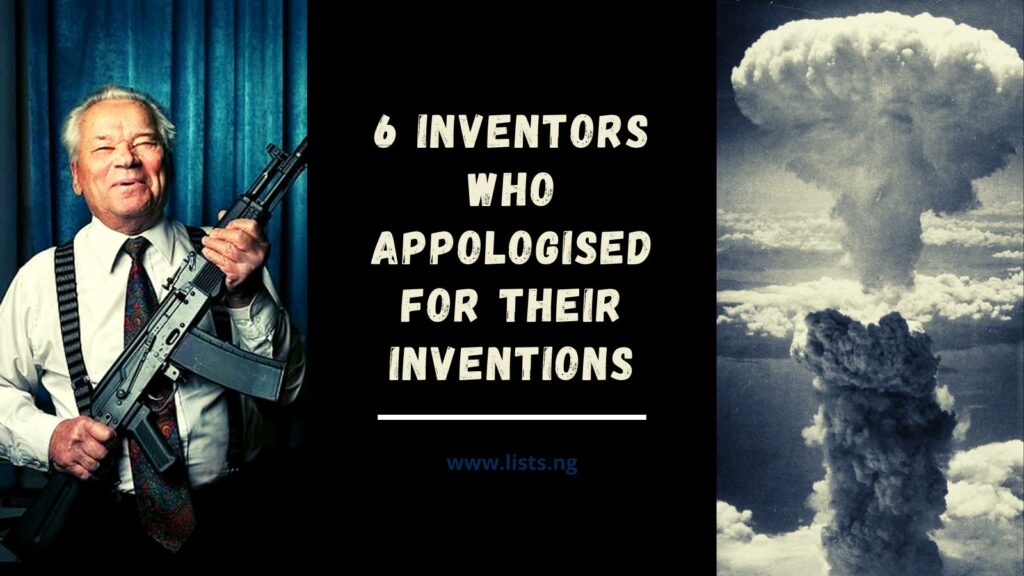Usually, the first feeling that comes to the mind of an inventor after a breakthrough creation is elation and fulfillment. But when these inventions are misused or its original intentions are corrupted, that happiness often turns into regret. Often times, simple inventions aimed at solving basic problems are exploited and used for deleterious purposes knowingly or unknowingly.
Here are 6 inventors that came to regret their inventions.
1. Ethan Zuckerman – Pop-up ads

Ethan Zuckerman is credited for writing the code for one of the most hated forms of advertising, pop-up ads. However, he is not especially proud of his invention and in 2014, in an essay about advertising as the default business model of the Internet, he explained the creation of pop-up ads and apologized for its creation. Zuckerman explains in his essay: “At the end of the day, the business model that got us funded was advertising. The model that got us acquired was analyzing users’ personal homepages so we could better target ads to them. Along the way, we ended up creating one of the most hated tools in the advertiser’s toolkit: the pop-up ad.”
2. Dong Nguyen – Flappy Bird

Flappy Bird was an arcade based game which was released in May 2013 and received a sudden rise in popularity in early 2014. The game became incredibly addictive and by the end of January 2014, it was the most downloaded free game in the App Store for iOS with over 50 million, which of course meant profitability for its developer, Dong Nguyen, as advertising revenue was reaching around $50,000 a day. However, while the game was successful, all was not well with its developer, as all the publicity attracted unwanted attention from the world’s press and Nguyen was bombarded with calls, tweets, and emails. Flappy Bird was eventually removed from both the App Store and Google Play by its creator on February 10, 2014. He claims that he felt guilt over what he considered to be its addictive nature and overuse.
3. Kamran Loghman – Pepper spray

Kamran Loghman was one one of pepper spray’s developers. He worked for the FBI in the 1980s and helped to make it into a weapons-grade material as well as helped write guidelines for police departments for using the spray. However, following incidents of pepper spray being used on peaceful protesters by law enforcement, Loghman expressed his regret. In an interview, he said “I have never seen such an inappropriate and improper use of chemical agents.”
4. Mikhail Kalashnikov – AK-47

Mikhail Timofeyevich Kalashnikov was a Russian Lieutenant-General, inventor, military engineer, writer, and small arms designer, famous for developing the AK-47 assault rifle While he took pride in his inventions and in their reputation for reliability, Kalashnikov felt sorrow at the AK-47’s uncontrolled distribution, as well as the fact that it became synonymous with killing on a sometimes indiscriminate scale.
5. Robert Propst – Cubicle

Robert Propst was an American inventor famed for the invention of the Action Office that evolved into the cubicle office furniture system. The Action Office system was designed to promote productivity, privacy, and health at the expense of some inefficient use of space.Probst’s invention was taken to another dimension and cubicles created, especially to maximize efficient use of space. The efficient “cubicle” became popular in office design because of the movable wall seen in the Action Office II (AO2) system, which initially saved money in construction and development costs. After their introduction into the marketplace, the Action Office II and other office systems were modified to pack in as many employees as possible into an office space. This vision was contrary to Propst’s intentions, and he stated that “The cubiclizing of people in modern corporations is monolithic insanity.”
6. Atomic Bomb

Despite the fact that Albert Einstein had no direct involvement in the creation of the atomic bomb, he introduced the world to the equation E=mc2 and in essence, discovered that energy and mass are interchangeable, setting the stage for nuclear power—and atomic weapons. Einstein believed the Germans would produce the bomb, and he signed a letter to President Roosevelt urging him to support the research of American physicists into the chain reaction. However, years later, Einstein came to deeply regret his letter to Roosevelt. “Had I known that the Germans would not succeed in producing an atomic bomb,” he said “I would have never lifted a finger.”



